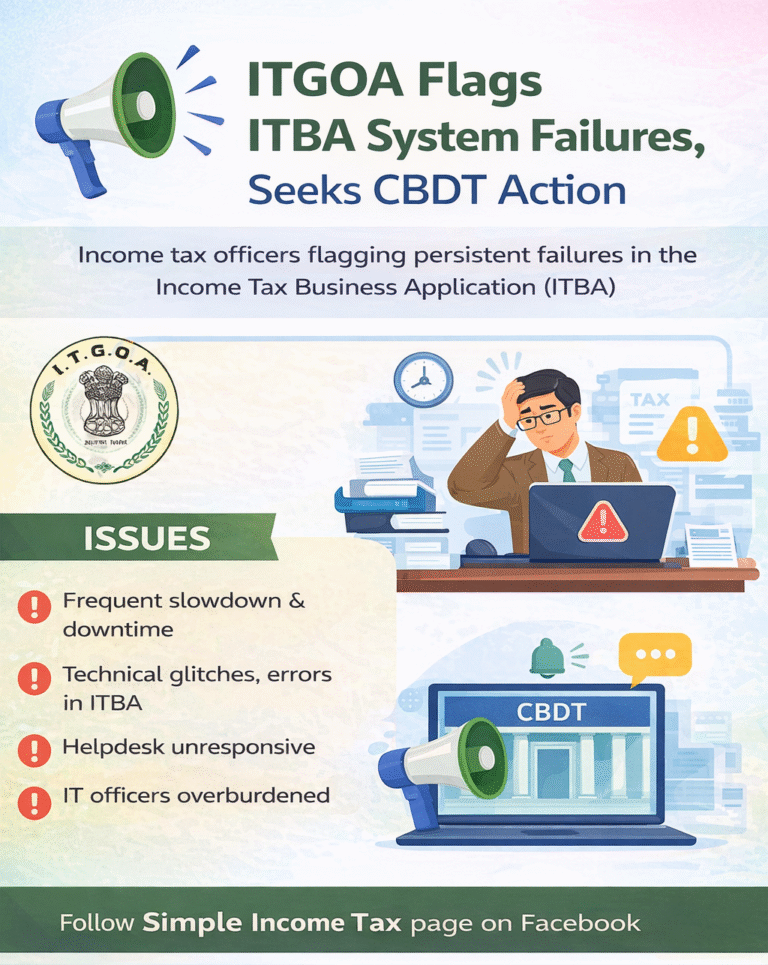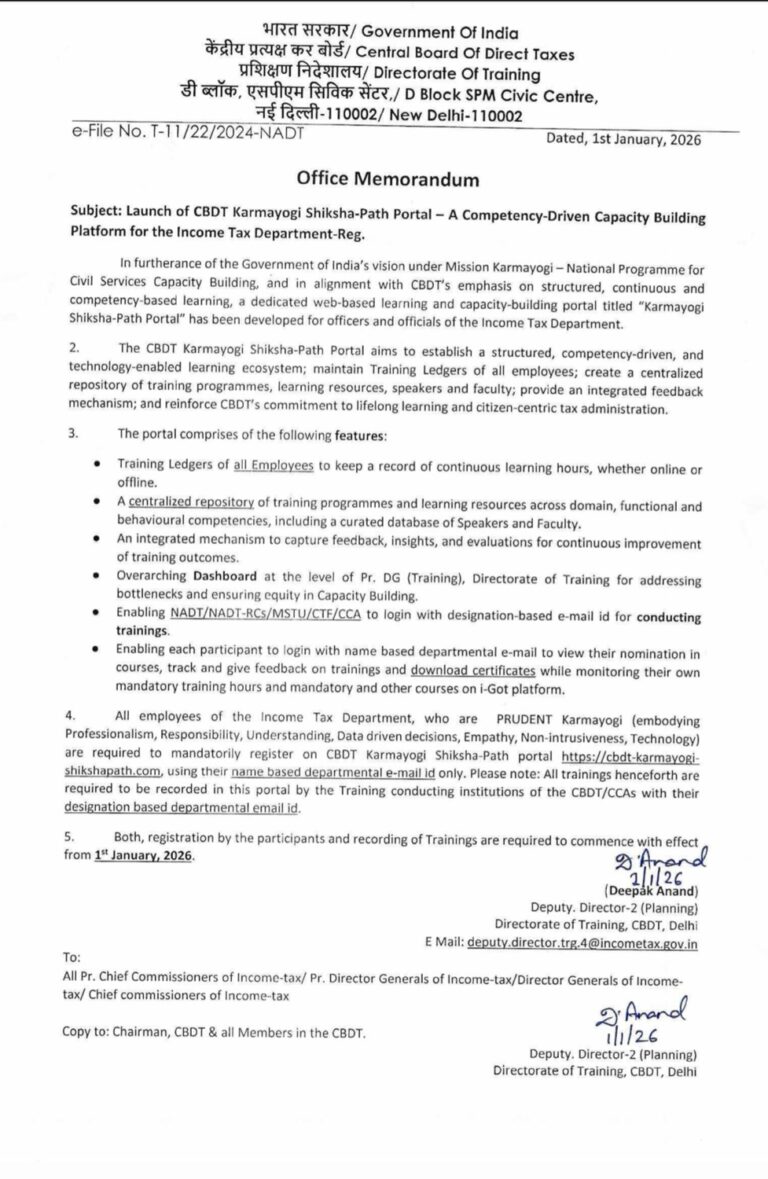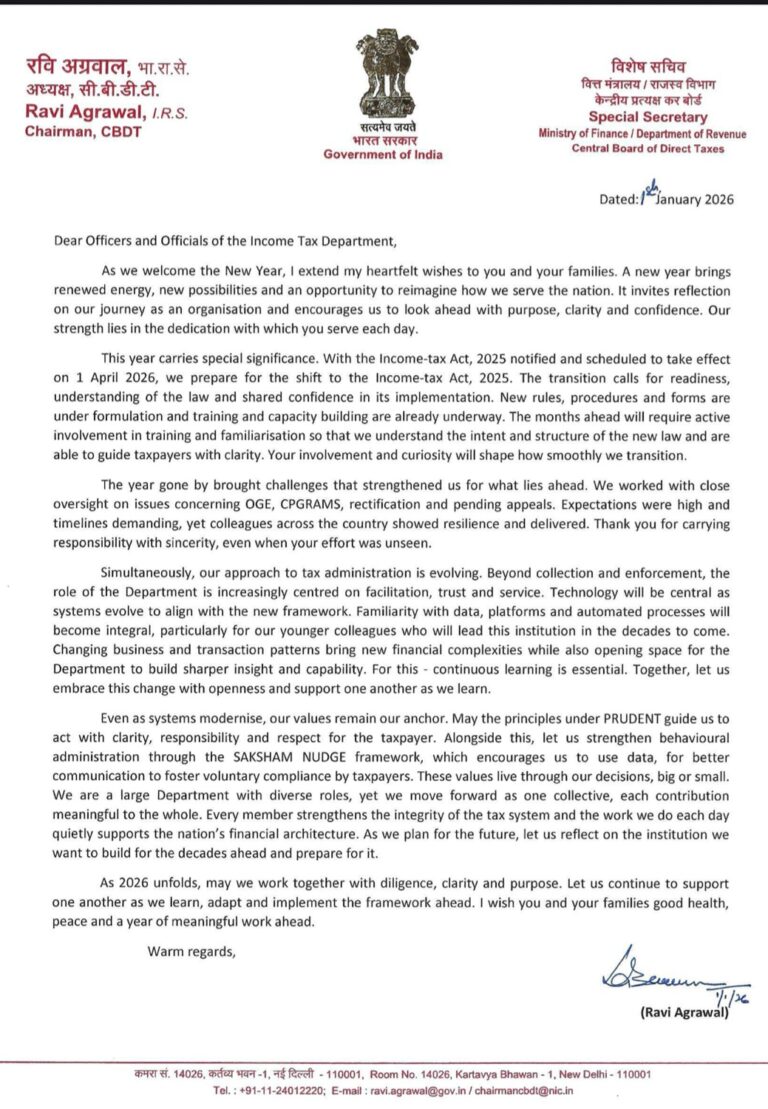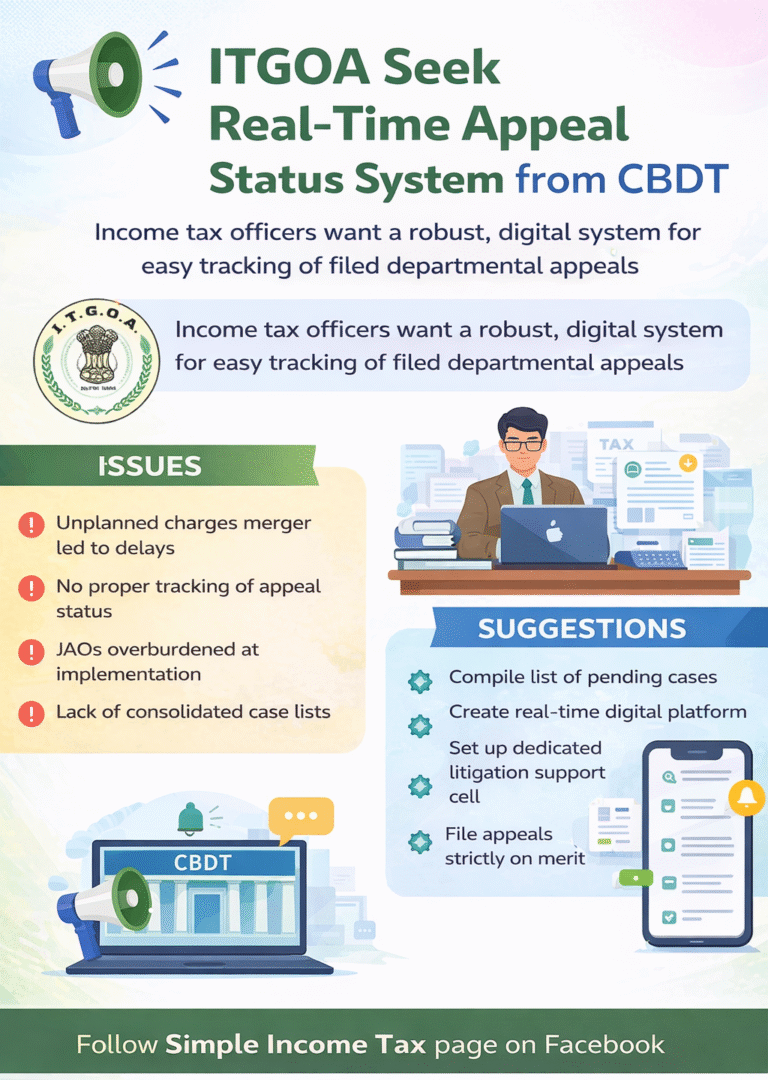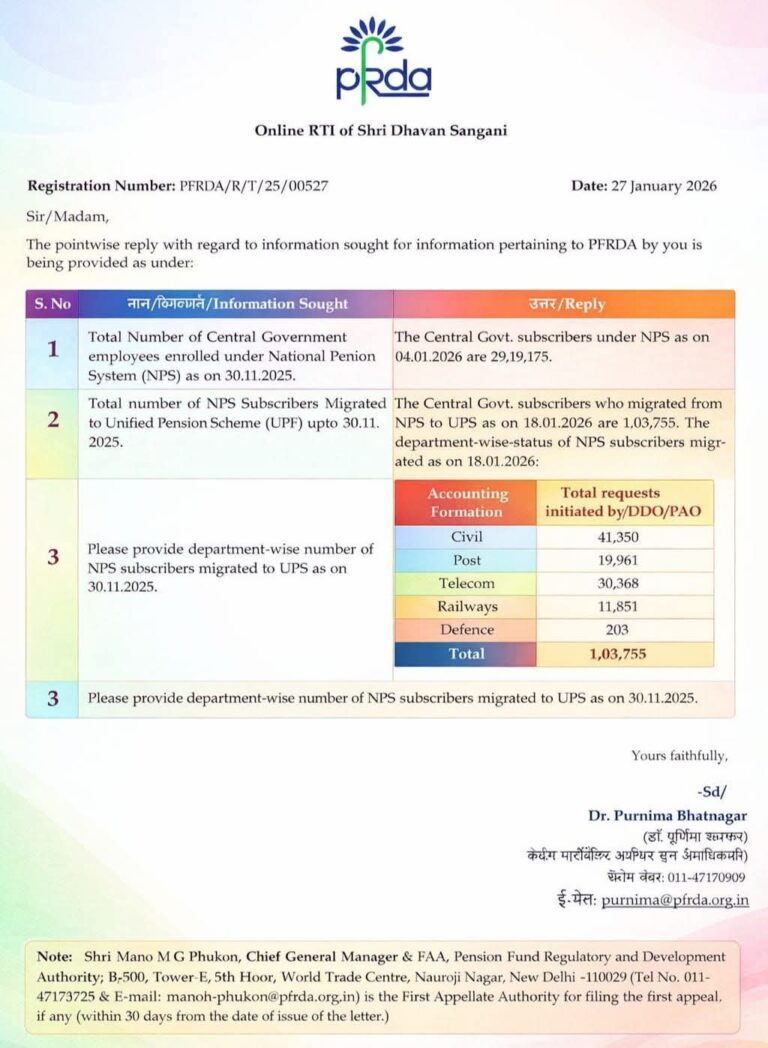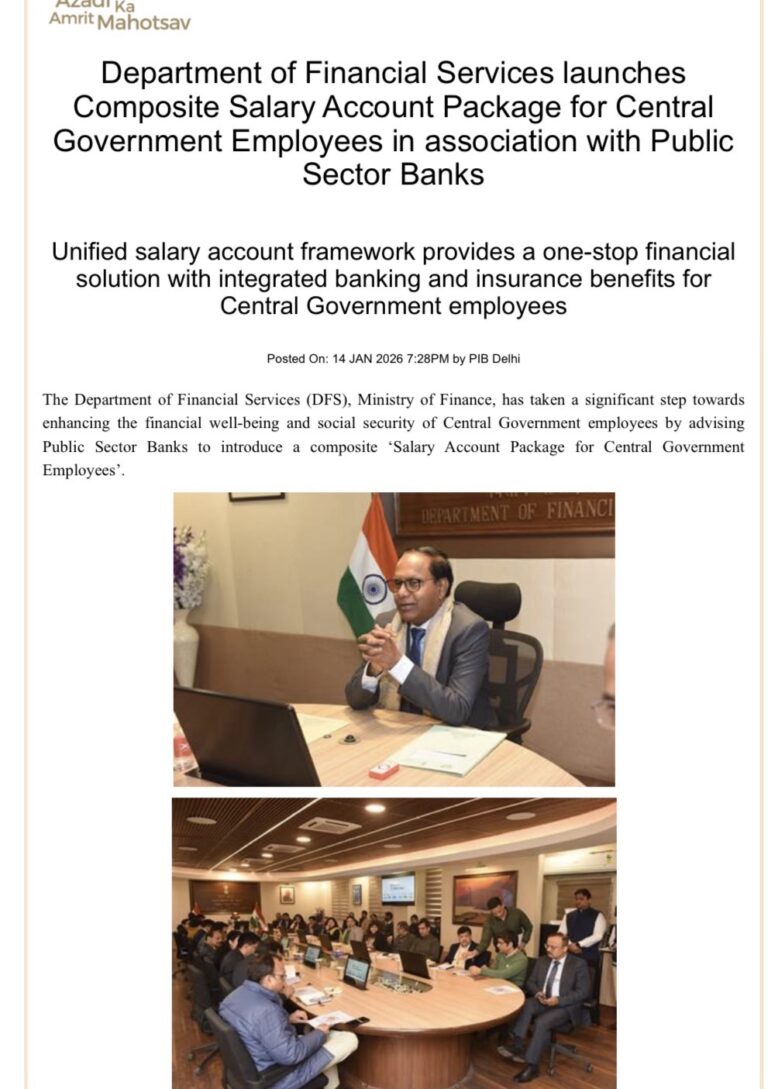The Directorate of Income Tax, HRD, Examination Division, CBDT has issued a formal invitation announcing the constitution of a high-level committee to review the syllabus and pattern for departmental examination in the Income Tax Department. The initiative has been approved by the Member, Central Board of Direct Taxes. CBDT reflects its commitment for keeping the departmental examinations more relevant, transparent and in related with modern requirements.
Reason for formation of Committee
Departmental examination plays a critical role in the career progression of employees in the Income Tax Department. It is helpful to for determination of promotions and act as a benchmark for the knowledge as well as skills required in handling the matters field of taxation.
With the introduction of the New Income Tax Bill, 2025 which is to be effective from 1st April 2026 and the increasing adoption of digital platforms like ITBA, CPC 2.0, Insight, it became necessary to revisit
– the syllabus to covers upcoming legislative changes.
– The pattern of exams, to integrate practical modules and real-life application based learning.
– the evaluation process to make it more transparent, objective, and technology driven.
The newly constituted committee has been given a time period of 12 weeks to submit its comprehensive report.
Composition of committee
The committee brings together senior officers from different wings of the department as well as representatives of staff associations ensuring a balanced perspective between needs of administration and concerns of staff. By including both senior officers and representative of staff association, the committee is expected to address the concerns of probationers, Inspectors, Ministerial Staff and officers in a holistic manner.
What are the key Areas of Discussion:
Some of the important discussion points are as under;
1. Analysis and review of Existing Syllabus and Exam Pattern
– Updating of syllabus incorporating provisions of the Income Tax Bill, 2025.
– Inclusion of practical training modules like ITBA operations.
– Reconsideration of exam modes (Online vs Offline) particularly for Ministerial Staff exams.
2. Examination Rules and Eligibility Reforms
– Recommendations from the NADT Committee on curriculum, training and exam structure.
– Review of pass percentage requirements, provision of grace marks, and rechecking norms.
– Possibility of granting extra attempts or open chances to candidates under special circumstances.
3. Eligibility Criteria
– Revisiting eligibility norms in line with revised Recruitment Rules (RRs).
– Expanding opportunities for lower cadre employees to appear for departmental exams.
4. Confirmation & Assessment of Direct Recruits
– Examination process for direct recruited Office Superintendents as per the Gazette Notification dated 20th September 2024.
5. Feasibility of Outsourcing Question Paper Preparation
– Exploring whether external academic/technical agencies can assist in setting exam papers to improve quality and neutrality.
6. Standardization and Transparency in Evaluation
– Proposal to conduct the Ministerial Staff exams in an online objective format.
– Formation of a review committee to deal with objections to answer keys, ensuring fairness in evaluation.
7. Any Other Related Issues
– The committee is empowered to deliberate on additional examination related concerns that may arise during discussions.
Impact expected: The work of this committee is expected to bring:
– Modernized and updated examination structures in line with upcoming tax laws.
– Greater focus on practical knowledge and digital systems such as ITBA, CPC 2.0, Insight etc used in the department
– Improved transparency in evaluation and examination conduct.
– More inclusive opportunities for employees at different levels.
This initiative of CBDT reflects its commitment to ensure that departmental examinations remain relevant, fair, and future-ready. The recommendations of this committee will likely set the tone for examinations in the coming decade.


